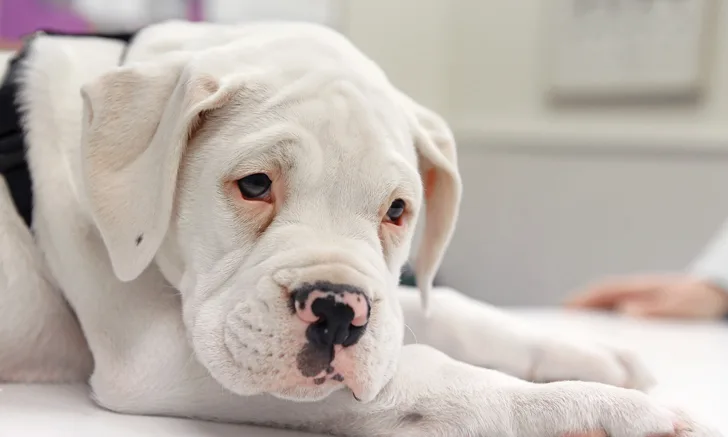
Canine Parvovirus Monoclonal Antibody: A New Treatment Option Now Available for Veterinary Use
Complete drug information and pet owner handout can be found at Plumbs.com.
Veterinarians have a new therapeutic option to treat canine parvovirus infection in dogs 8 weeks of age and older. Canine parvovirus monoclonal antibody (parvovirus mAb) is conditionally approved by the USDA for the treatment of parvovirus, which means although studies for effectiveness and potency are ongoing, this drug has proven safety and purity, and has demonstrated “a reasonable expectation of efficacy.”
What Is Canine Parvovirus Monoclonal Antibody?
Canine parvovirus monoclonal antibody is the only treatment that directly targets canine parvovirus. When administered to unvaccinated puppies exposed to parvovirus, the product increases survival, decreases the severity of clinical signs, hastens resolution of clinical signs, and shortens hospitalization.
Stay informed with this clinical primer: Canine Parvovirus
Pharmacology of Canine Parvovirus Monoclonal Antibody
Canine parvovirus monoclonal antibody works by binding to canine parvovirus, preventing viral infiltration into host cells.
Contraindications of Canine Parvovirus Monoclonal Antibody
Do not use canine parvovirus monoclonal antibody in dogs less than 8 weeks of age or in any other species. It has not been studied in pregnant dogs.
Side Effects of Canine Parvovirus Monoclonal Antibody
Injection site reactions (eg, erythema, inflammation, edema, pain) were reported with parvovirus mAB. These reactions occurred in 4% of dogs, were typically mild in severity, and resolved within one day. Anaphylaxis or anaphylaxis-like reactions were not observed.
Additional Information & Dosing Instructions
Canine parvovirus monoclonal antibody must be stored in the freezer.
A comprehensive look at how to manage parvovirus in dogs using canine parvovirus monoclonal antibody is offered by the experts at Plumb’s — full drug details and pet owner handout can be found here.
Quiz yourself: Nutritional Support in a Puppy with Parvoviral Enteritis
Clinician’s Brief previously reported on the FDA’s conditional approval in May 2023:
Conditional Treatment Approved for Canine Parvovirus
by Hailey Rein
A new treatment for canine parvovirus is coming to veterinary practice, Elanco Animal Health Incorporated has announced. The pharmaceutical company received a conditional license from the US Department of Agriculture for the first canine parvovirus monoclonal antibody.
Canine parvovirus is a common cause of severe gastrointestinal signs (including vomiting and diarrhea) in puppies and is associated with high morbidity rates, necessitating a critical level of attention—and emotional toll—from veterinary staff.1 To date, treatment for canine parvovirus primarily entails aggressive supportive care with fluid therapy, antibiotics, antiemetics, and nutritional support that usually requires hospitalization and intense nursing care. This monoclonal antibody treatment will be the first approved therapeutic solution to treat parvovirus.
The canine parvovirus monoclonal antibody is a single IV dose proven effective in decreasing mortality associated with parvovirus infection. It also showed significantly faster times to resolution of most adverse effects of parvovirus.
The treatment can be administered in dogs ≥8 weeks of age diagnosed with canine parvovirus.
The canine parvovirus monoclonal antibody is expected to be available this summer, pending state approvals, according to Elanco. As details become available, further information will be released at Clinician’s Brief and at Plumb’s.